Marco Impagliazzo: Fraternity & Care for Environment, the Ways to Come Out of the Pandemic
In an Exclusive Interview, President of Community of Sant'Egidio Talks About World's Religious Leaders in Rome with Pope Francis
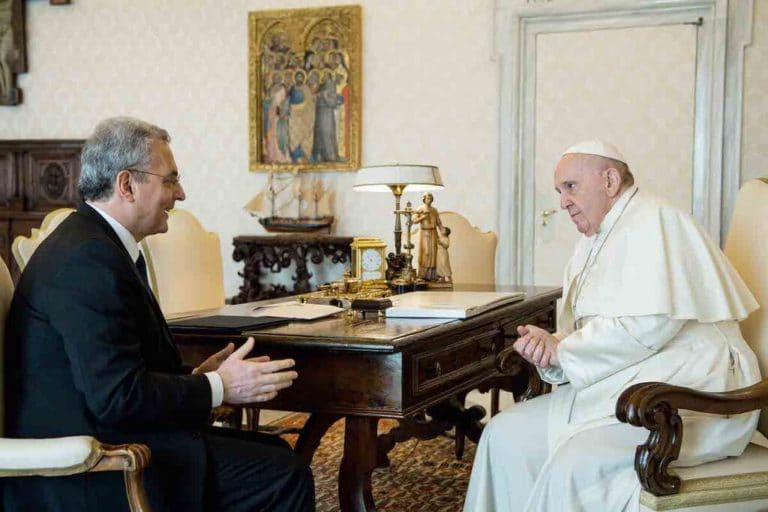
Numerous religious leaders from around the world, in the presence of Pope Francis, will gather together in Rome on Oct. 6-7, to tackle the theme “Peoples as Brothers, Future Earth.”
In an exclusive interview with Exaudi, Marco Impagliazzo, President of the Community of Sant’Egidio, presented the encounter, and underscored: “Fraternity and the care of Creation are a common concern of all the religions and, at the same time, the way out of the pandemic. And where there is a universal fraternity promoted by religions, there will also be new interest and new care for the environment.”
This is imperative, he warned, because today there are “demanding decisions, which can no longer be postponed in face of the present environmental crisis.”
The event in Rome will be inaugurated at the “Nuvola” Congress Center in the EUR business district, and its closing ceremony will be in the afternoon of October 7, next to the Colosseum. It will be the 35th edition of the meetings initiated in the wake of the historic World Day of Interreligious Prayer for Peace of October 27, 1986.
In the face of recurring news on religious fanaticism, especially that from Afghanistan, for Impagliazzo “the answer is in fact the Spirit of Assisi, namely, to walk together as believers of different religions, not only in mutual respect and in dialogue, but also in friendship.” And the meaning of the annual meetings of the Community over which he presides is precisely “build personal bonds of friendship among the religious leaders” and “to show, without ambiguity, that no war is holy, but only peace is.”
Following is the interview with Exaudi.
* * *
EXAUDI: With the 2021 edition we have reached the 35th annual meeting, organized by the Community of Sant’Egidio in the wake of the historic World Day of Prayer for Peace convoked in Assisi in 1986 by Saint John Paul II, with exponents of all the religions of the world. You have chosen as its title “Peoples as Brothers, Future Earth.” What is its meaning?
MARCO IMPAGLIAZZO: The meeting of prayer for peace planned in Rome on October 6-7, intends to open a prospect for the world, which is coming out of the pandemic. Two decisive topics of the future are enclosed in the title: universal fraternity and care of the common home. They are subjects that arise out of the common concern of all the religions and, at the same time, as a way out of the pandemic. Because “no one saves himself alone,” as Pope Francis said during the unforgettable prayer in the Saint Peter’s Square on March 27, 2020, but also because — as we know — one of the causes of COVID-19 is, in fact, the environmental crisis. Fraternity and the care of the common home are two points that unite, because where there is a universal fraternity promoted by the religions, there will also be a new interest and a new care of the environment.
EXAUDI: We are only weeks before the COP26 in Glasgow, the global conference on climate change, expressing the urgency to address this problem with concrete solutions, as Pope Francis also exhorts. In your opinion, what should be the contribution of religions to this global battle for saving the planet?
MARCO IMPAGLIAZZO: Climate change is one of the most evident consequences of the environmental crisis that we are going through, and it shows us that we can no longer postpone demanding decisions, because the time is about to run out. The young people of Greta Thunberg’s Movement are asking for it, but also many international leaders and politicians are finally being convinced that it is the time to act with responsibility for the future of all. In his Encyclical Laudato Si’ Pope Francis posed the question some time ago. He and Patriarch Bartholomew with their commitment in favor of the environment, show that at this level the contribution of the religions is decisive.
EXAUDI: Why?.. And how?
MARCO IMPAGLIAZZO: With their millennial wisdom, religions can teach men to protect nature, to work together for the protection of the environment and to put a stop to a predatory attitude. After the pandemic, we cannot return to life as before, but we must come out of it together, finding also the strength to change and to love our Mother Earth more, as Saint Francis of Assisi would say. One of the forums of the meeting will be dedicated in fact to “the care of the common home,” and it will be enriched by reflections, among others, of Rabbi David Rosen, of Cardinal Matteo Zuppi and of Jeffrey Sachs, Special Adviser of the UN Secretary General for environmental questions.
EXAUDI: This initiative of the Community of Sant’Egidio is remade from the beginning — as mentioned — in the Spirit of Assisi, the spirit of that historic Day in which the world’s religious leaders affirmed clearly that religion cannot foment hatred and war, if it’s not to betray its very essence. Yet religious fanaticism is still strong. I am thinking of Afghanistan, of the recent events in Kabul . . . In your opinion, how can it be overcome?
MARCO IMPAGLIAZZO: The answer to fanaticism is precisely the Spirit of Assisi, namely, to walk together as believers of different religions, not only in mutual respect and dialogue, but also in friendship. This is the meaning of our meetings: to build, year after year, personal bonds of friendship between the religious leaders. And, especially, to show, without those ambiguities, that there could be also in the recent past, that religion and violence are opposite and no war is holy, but only peace. Let me add that this meeting is held “in presence”: it is a sign of a true restarting, but also the occasion for personalities from 40 countries of the world to talk, to exchange ideas and to imagine together the future of the world. However, in connection with the instrumental use of religion to justify violence, I would like to recall the words of the appeal for peace launched during one of our meetings, in fact from Assisi in 2016, 30 years after the historic prayer desired by Saint John Paul II; “Whoever invokes the name of God to justify terrorism, violence and war, does not walk on His way: war in the name of religion becomes a war on religion itself. Therefore, with firm conviction, we confirm that violence and terrorism are opposed to the true religious spirit.”
EXAUDI: For the second consecutive year, Pope Francis will have the honor of taking part in this meeting of the Community, next to so many religious leaders. Can you tell us more? How was the Pope invited? And what did he tell you in person?
MARCO IMPAGLIAZZO: In fact, as you say, it is a great honor that the Pope will be with us in this moment of universal fraternity. A few months ago, when he received me in audience, that was the occasion for me to share with him the idea of this new meeting in the Spirit of Assisi, thought above all in the framework that he indicated to help the world come out of this pandemic better than when we entered it. What the Pope said is that it would be fundamental to call the religions to imagine the post-pandemic world focusing on universal fraternity and the care of Creation, which are in fact the central topics of his two last encyclicals, Laudato Si’ and Fratelli Tutti. I asked the Pope to help us, with his vision and his faith, to reflect further on these two topics together with some religious and spiritual leaders. And he willingly accepted the proposal, as a contribution to the “reconstruction” of the post pandemic world. Let us not forget, then, that being the Bishop of Rome, this Meeting is taking place in “his” diocese. Hence his voice will be that of the bishop of the city as well as that of the universal Church.
EXAUDI: At what events in Thursday’s program, will Pope Francis be present?
MARCO IMPAGLIAZZO: The Pope will preside over the Christians’ ecumenical prayer and he will intervene in the final ceremony at the Colosseum with leaders of the different religions. “Peoples as Brothers, Future Earth” are two keys of Pope Francis’ pontificate; he dedicated his two last encyclicals Fratelli Tutti and Laudato Si’ to the theme of universal fraternity and to the care of the common home. Therefore, we expect many fruits from this meeting, which will be a dynamic congress. Finally, we meet face to face and this will certainly see new ideas and new proposals emerge, on which to commit ourselves and work on together.
Related
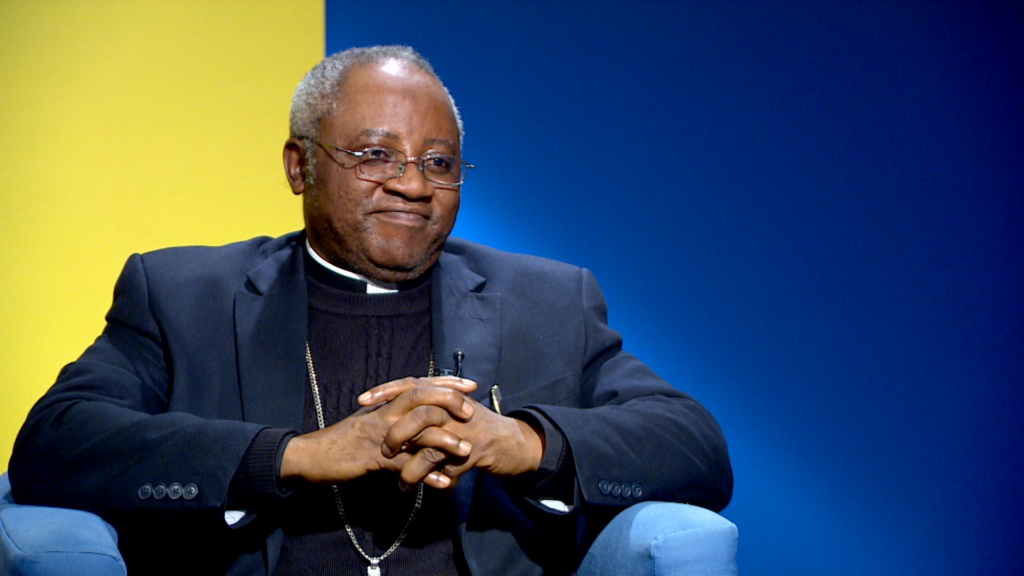
Despite hardships, Christianity is growing “astronomically” in northern Nigeria
Ayuda a la Iglesia Necesitada
10 April, 2025
3 min
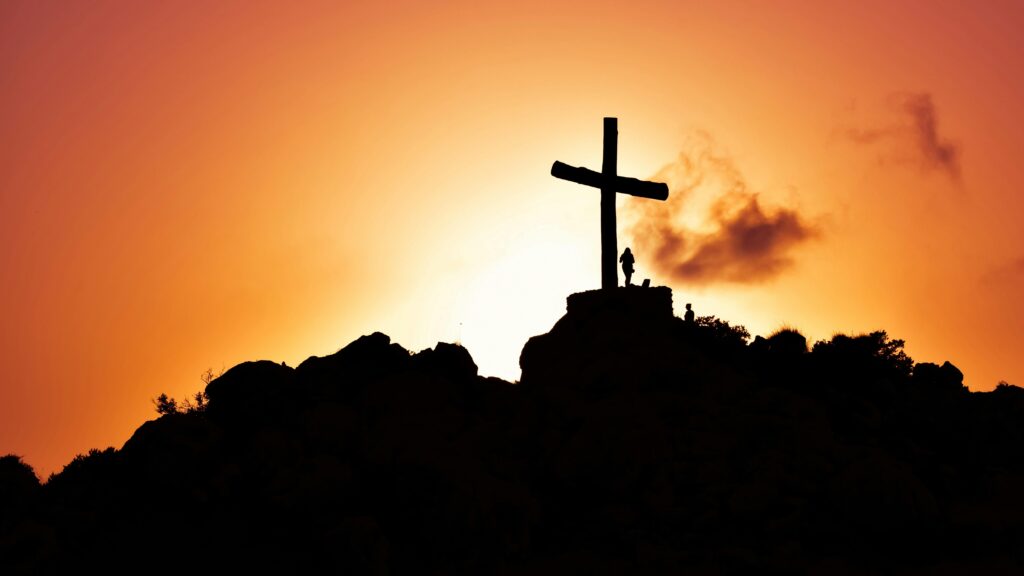
“Christianity, a Powerful Engine of Social Transformation”
Exaudi Staff
09 April, 2025
3 min
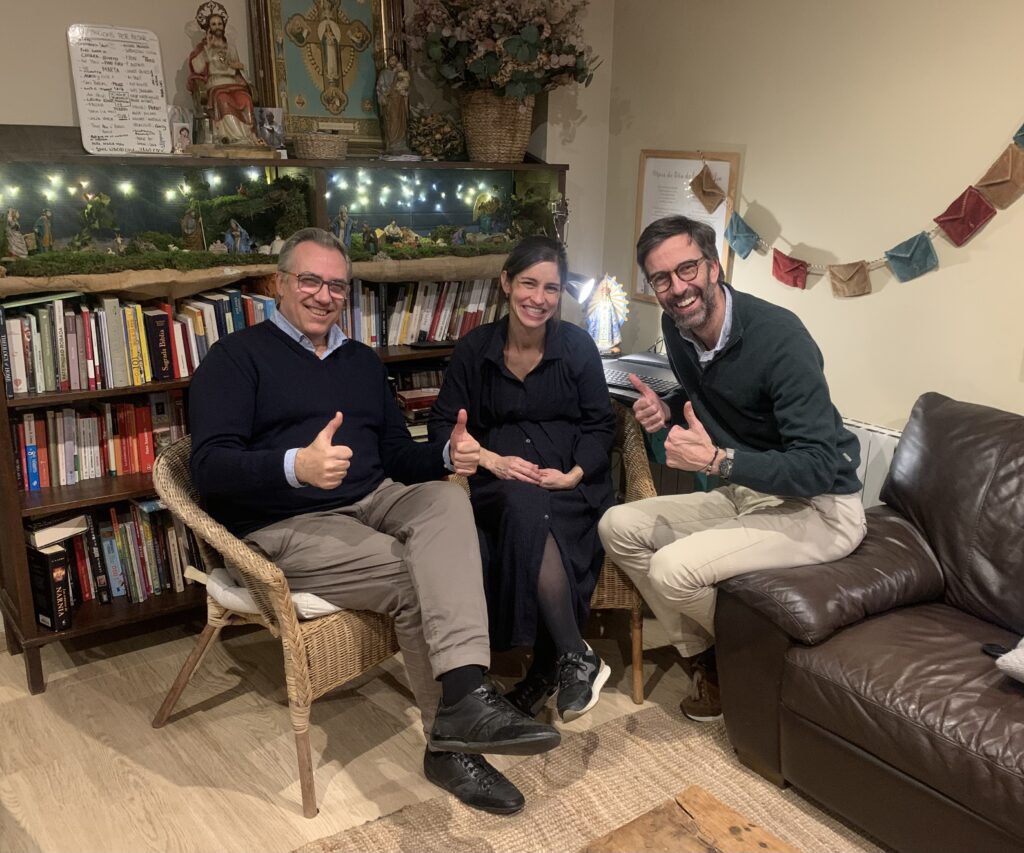
Let God be God
Albert Cortina
11 March, 2025
25 min
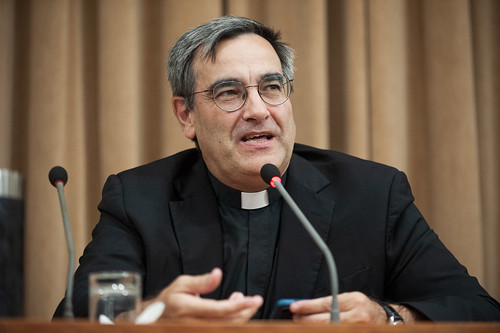
Fernando Puig, new rector of Santa Croce
Fundación CARF
19 February, 2025
6 min
 (EN)
(EN)
 (ES)
(ES)
 (IT)
(IT)

